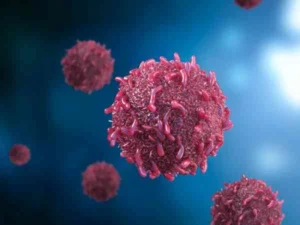Abdominal pain, often known as stomach ache or stomach discomfort, can occur anywhere from the ribcage to the pelvis, affecting organs such as the stomach, liver, pancreas, and reproductive systems. This area also contains major blood vessels. Appendicitis and pregnancy difficulties are serious causes, however, the majority of cases are benign and heal without surgery.
Many people merely require symptom alleviation. Occasionally, stomach discomfort goes away without a clear explanation, or the cause becomes obvious over time. Understanding the many organs contained in the abdomen is critical for identifying potential sources of discomfort and providing a proper medical response for serious diseases.
Understanding Abdominal Pain

Discomfort that occurs between the chest and pelvic areas is referred to as abdominal discomfort. Cramping, achy, dull, intermittent, or acute abdominal discomfort might occur. It’s also known as a stomachache. The discomfort is restricted to one location of the abdomen.
This form of discomfort is frequently caused by issues with a certain organ. Stomach ulcers (open sores on the stomach’s inner lining) are the most prevalent source of localized discomfort.
Cramp-like discomfort might occur in conjunction with diarrhea, constipation, bloating, or gas. It can be connected with menstruation, miscarriage, or reproductive difficulties in those who were designated female at birth. This discomfort comes and goes and may resolve itself without therapy.
Types Of Abdominal Pain

Abdominal pain varies in nature. Acute abdominal pain, lasting about a week or less, is a recent discomfort, while chronic abdominal pain is constant or recurring, persisting for three months or more. Identifying the root cause of abdominal pain is challenging for healthcare professionals due to numerous gastrointestinal and systemic disorders.
Progressive abdominal pain worsens over time, often accompanied by additional symptoms, signaling potential seriousness. Understanding distinct types of abdominal pain, their locations, and potential causes is crucial for comprehensive insights into abdominal health. Continue reading to explore more about these variations and gain knowledge about their characteristics.
Abdominal Pain Causes
The following are the primary causes:
Aberrant growths due to infection Inflammation obstructs (blocks) Intestinal inflammation illnesses affecting the organs of the abdomen. Bacteria can enter your digestive tract as a result of infections in your throat, intestines, or blood. Cramps related to menstruation can also induce lower abdomen pain, however, they are more typically connected with pelvic pain.
Abdominal Pain Symptoms

There are many symptoms of stomach pain. However, its main symptoms may include:-
- Burning
- Gurgling in stomach
- Sour belching
- Fever
- Vomiting
- Abdominal distension
- Excessive gas formation in the stomach
- Bleeding in stool
- Having trouble breathing
- The feeling of heaviness in the stomach
- Pain like needle prick in stomach
- Intermittent stomach ache
- Stomach feels soft
- Vomiting with blood in some cases
- Sometimes pain while urinating
Lower abdominal Pain In Women?

- Ovulation Pain: During ovulation, some women may suffer slight discomfort. Pelvic
- Inflammatory Disease (PID): A female reproductive system infection can cause lower abdomen discomfort.
- Ectopic Pregnancy: When a pregnancy implants outside of the uterus, it can cause significant lower abdomen pain.
- Ovarian cysts: These are fluid-filled sacs on the ovaries that can cause pain.
- Appendicitis: Appendicitis is an inflammation of the appendix that causes pain in the lower right abdomen.
- Reproductive Organ Disorders: Pain can be caused by conditions affecting the uterus, fallopian tubes, or ovaries.
Treatment for Abdominal Pain?

There are many ways to get relief from stomach pain. To get relief from stomach pain, home remedies, English medicines, Ayurvedic medicines, homeopathic medicines etc. can be used. If the cause of stomach pain is indigestion, gas, food poisoning, or any other common problem, then it can be treated with medicines. If the cause of stomach pain is some serious disease or problem, then in this situation doctors can use surgery.
Doctors resort to tests to confirm the exact cause of stomach pain. After the test results are received, the doctor chooses the means of treatment keeping in mind the cause of stomach pain and the age and overall health of the patient.
In case of stomach ache, you should talk to your doctor about what your diet should be. Consuming any food as per your wish during stomach ache can prove to be harmful for you.
What Should Not Be Eaten During Abdominal Pain?
In case of stomach ache, you should avoid the following things:-
- Tea and coffee
- Alcohol and cigarettes
- Tobacco and gutkha
- Citrus fruits
- Fatty foods
Home Remedies for Abdominal Pain

- Bitters with sparkling water Although you would not expect to search for nausea treatment in a bar, many people swear by five or six drops of cocktail bitters stirred into a chilled drink of tonic, club soda, or ginger ale. Most bitters comprise a combination of herbs including cinnamon, fennel, mint, and ginger. Bitters may help relieve nausea in some people because of these substances.
- Ginseng Ginger has been used as a cure-all for anything from pain to nausea since ancient times. It’s not simply a folk story, either. Ginger has been demonstrated in studies to be an effective therapy for certain types of stomach discomfort. Ginger, a natural anti-inflammatory, comes in a variety of forms, all of which can be beneficial. Ginger chews and pills are convenient, but some individuals prefer ginger beverages. Try an all-natural ginger ale or create a tea with fresh ginger root.
- Chamomile tea, third By acting as an anti-inflammatory, chamomile tea can help relieve the discomfort of an upset stomach. These anti-inflammatory characteristics calm your stomach muscles, which can alleviate cramping and spasm discomfort.
Conclusion
Stomach pain is a complicated symptom with several probable causes ranging from mild to severe. Its many forms make correct diagnosis difficult, demanding a comprehensive examination by medical personnel. While moderate instances may be relieved by home treatments, chronic or severe stomach discomfort needs immediate medical attention to identify and treat the underlying cause.
Understanding the specific elements that contribute to abdominal discomfort, such as organ involvement, menstrual cycles, and gastrointestinal health, is essential for optimal care. Individuals experiencing stomach discomfort benefit from timely intervention since it enables effective therapy and contributes to their well-being and comfort.







